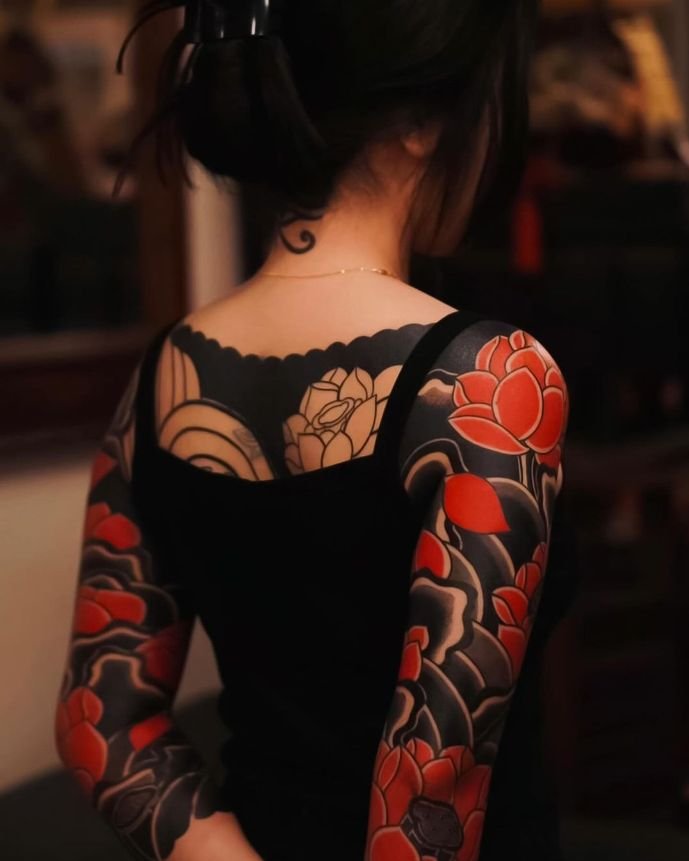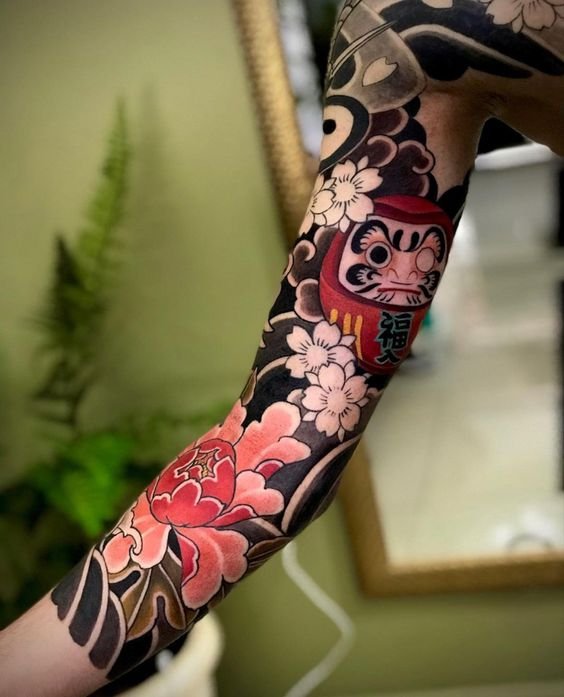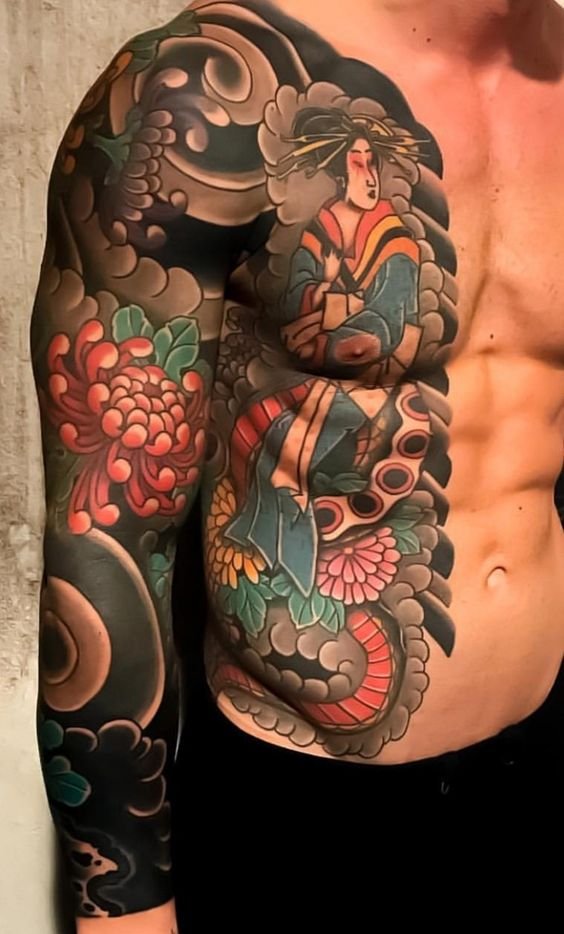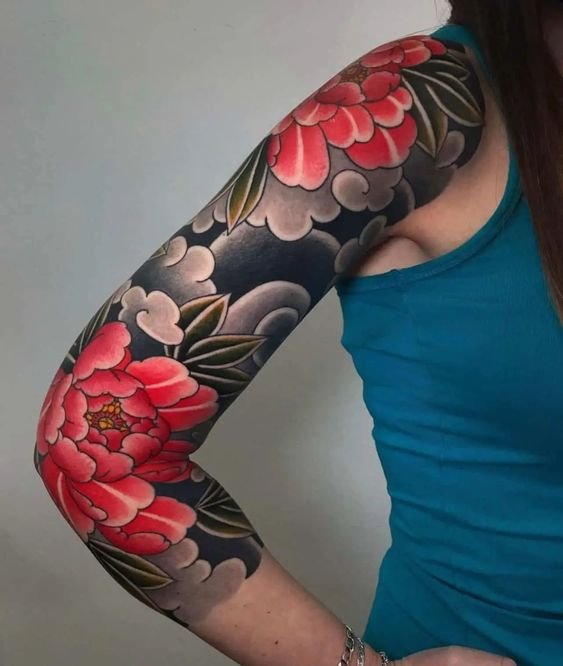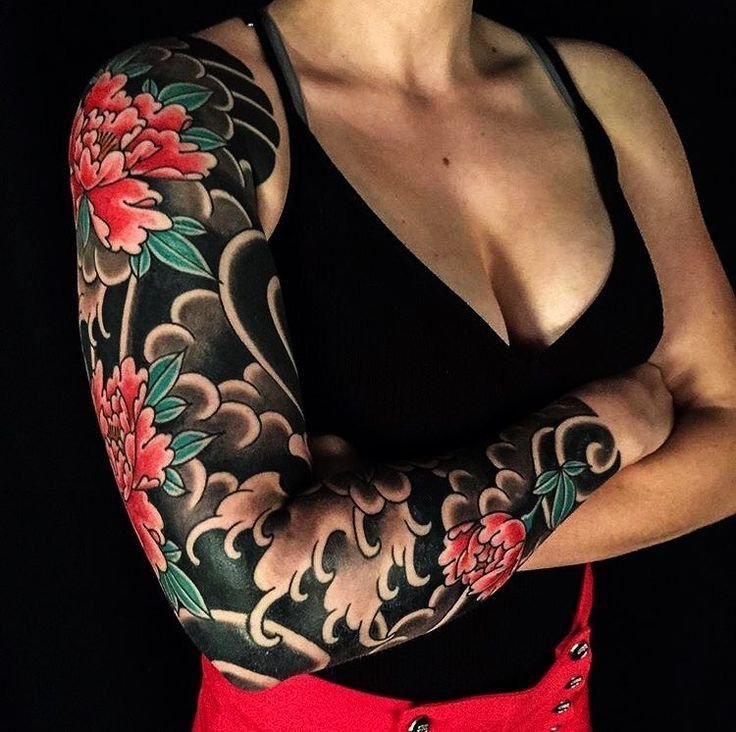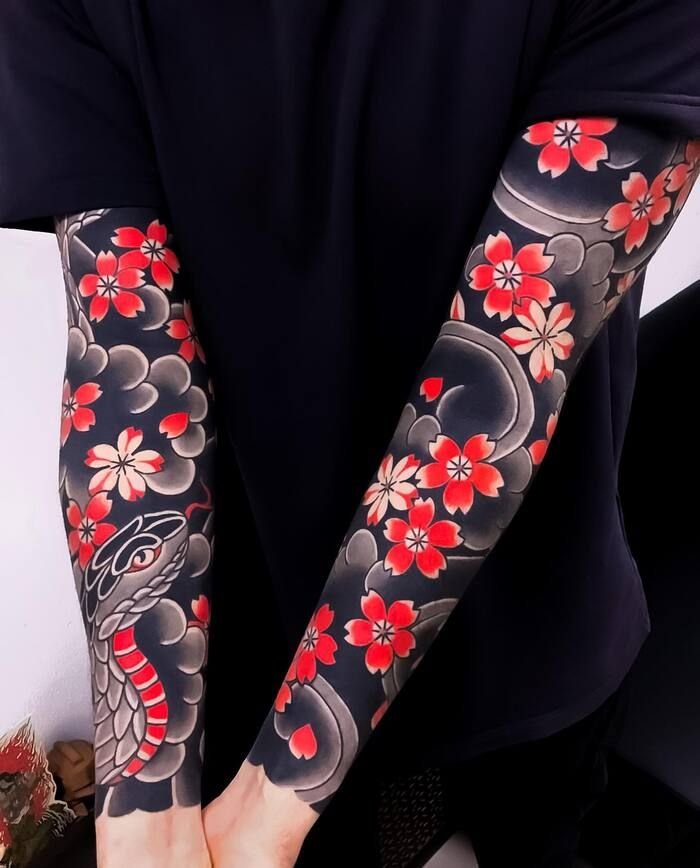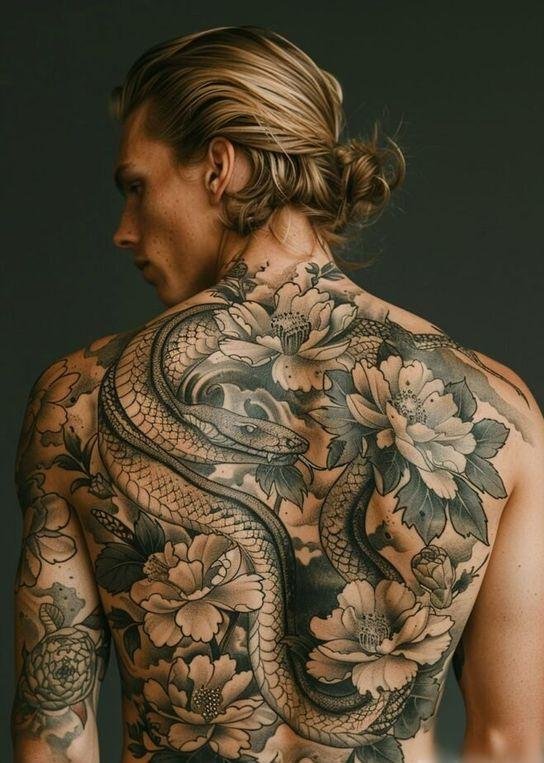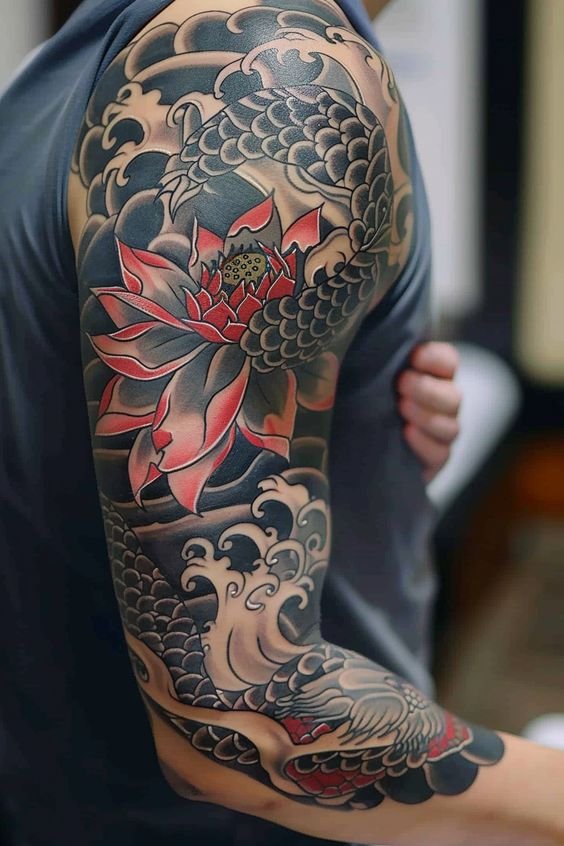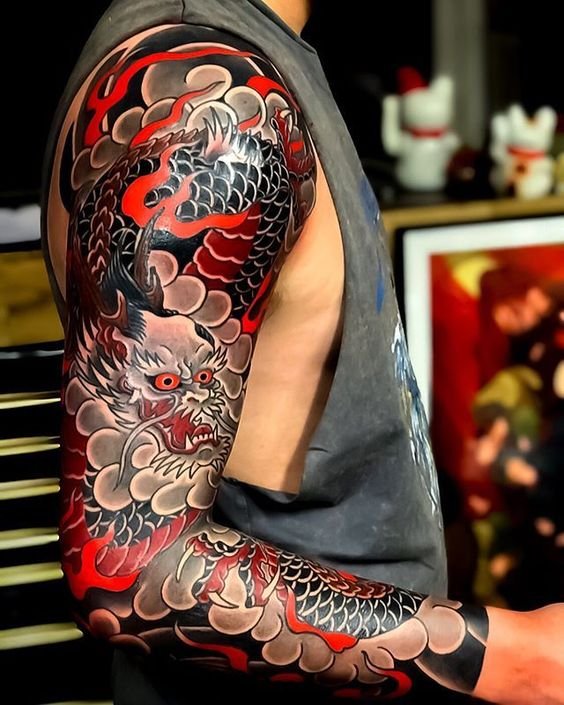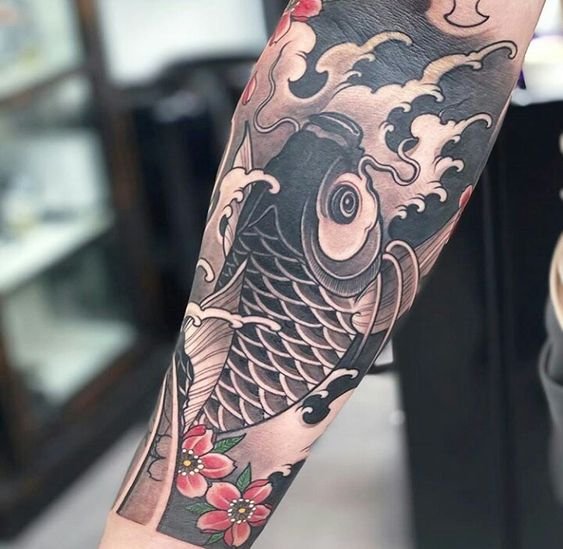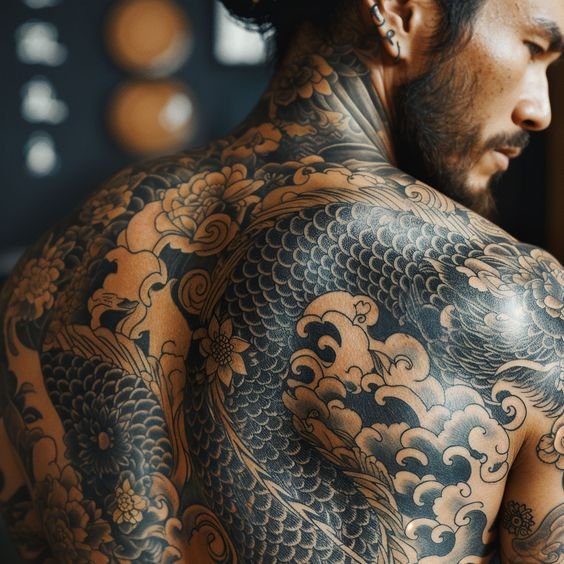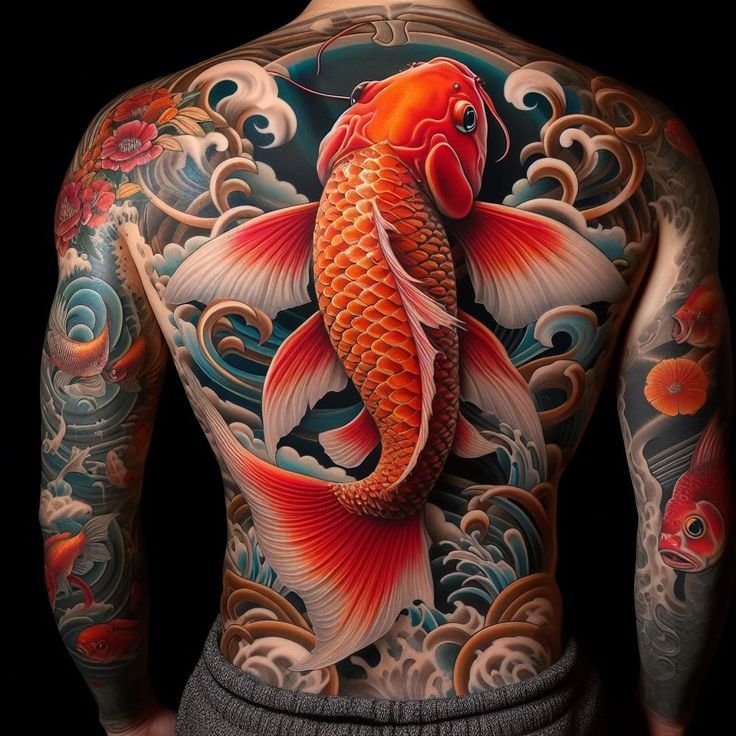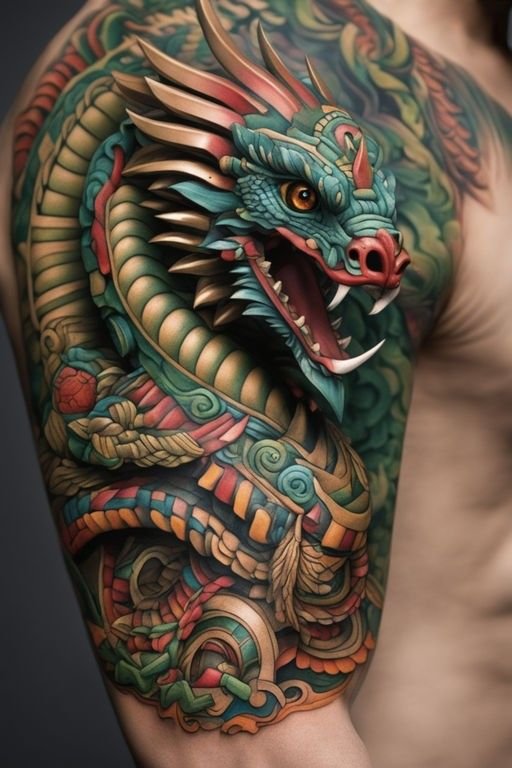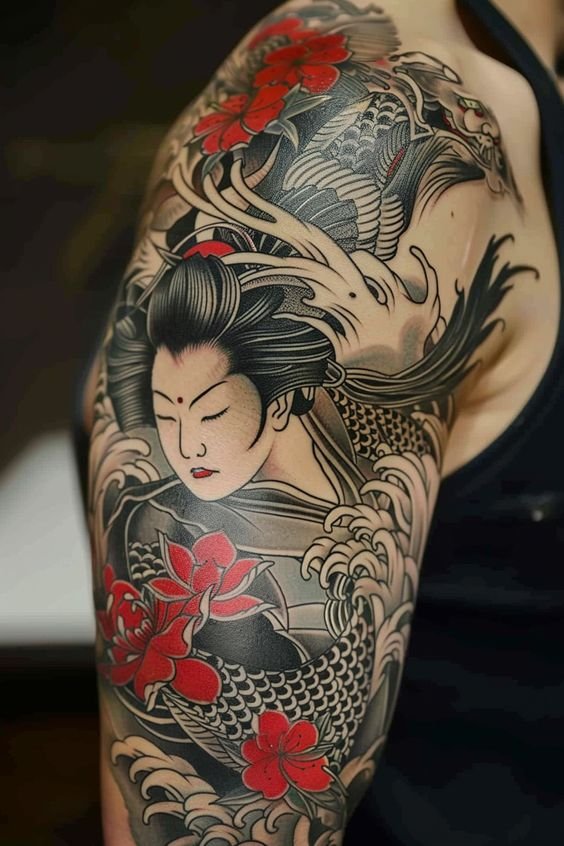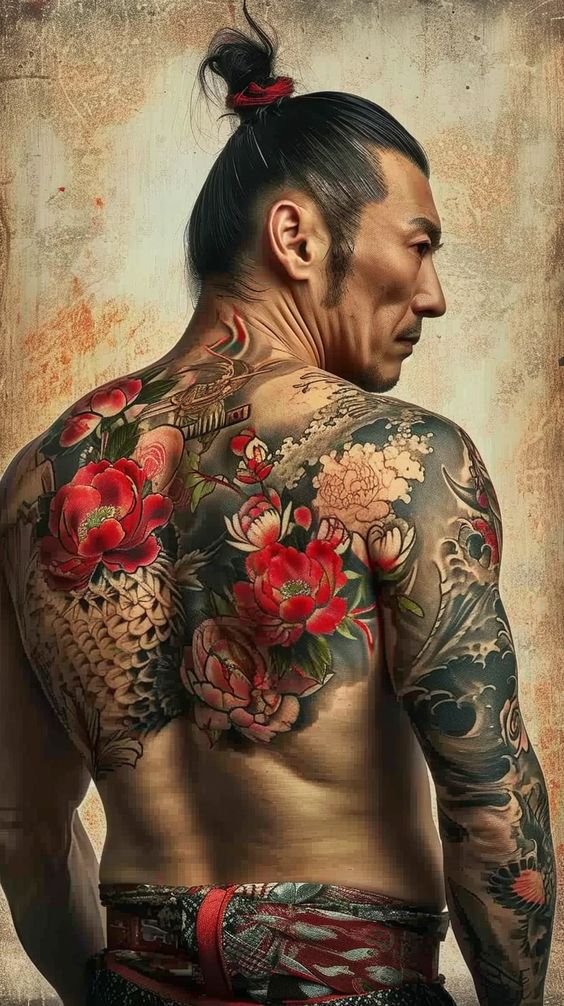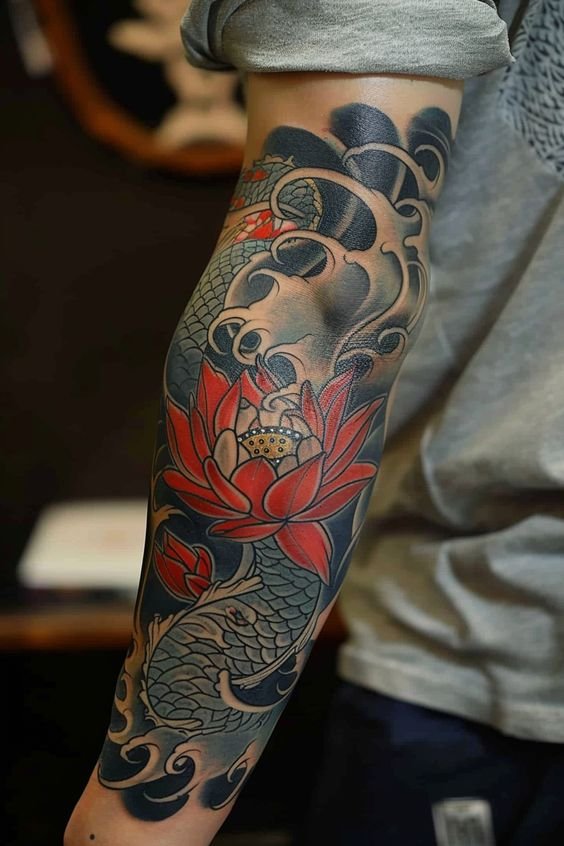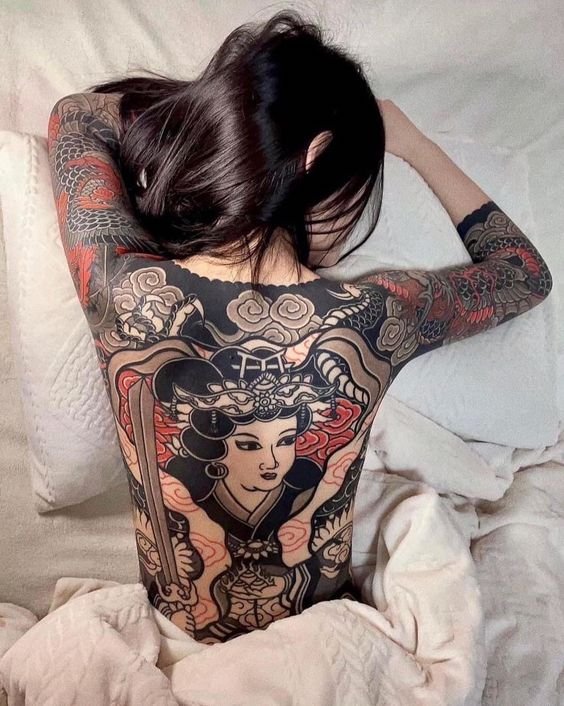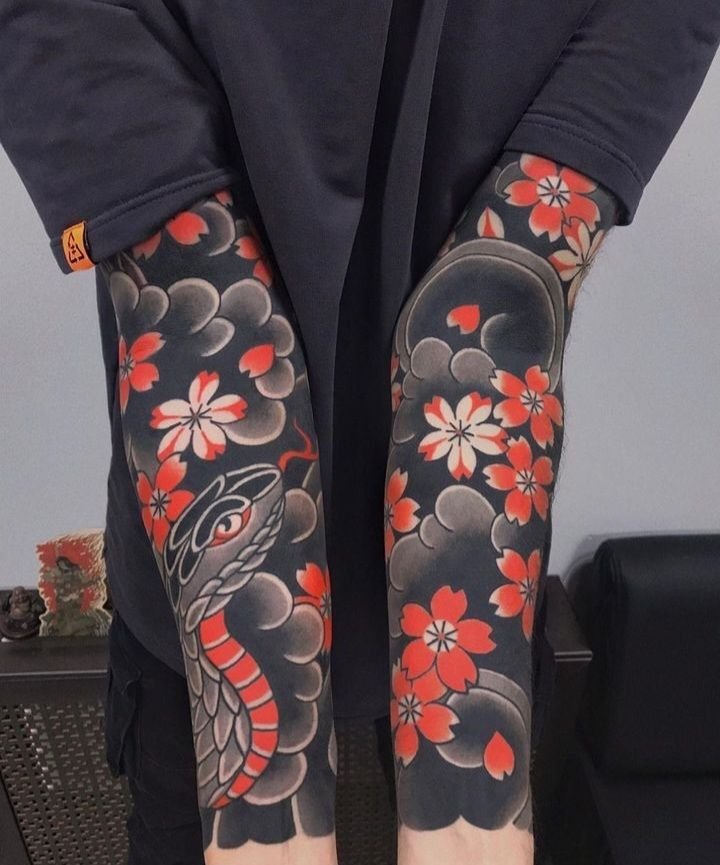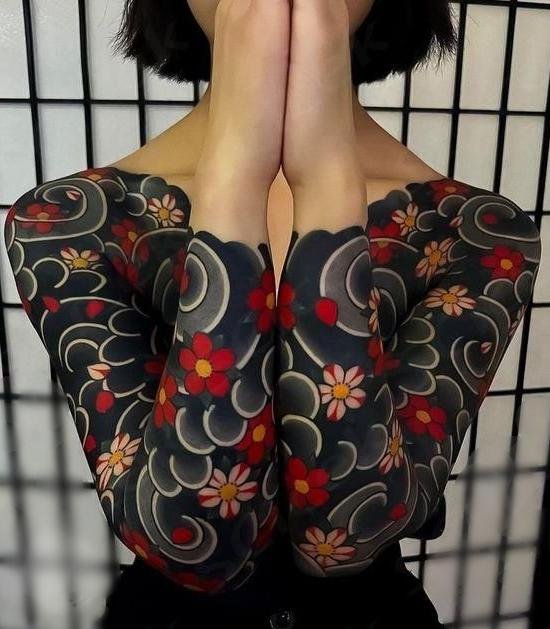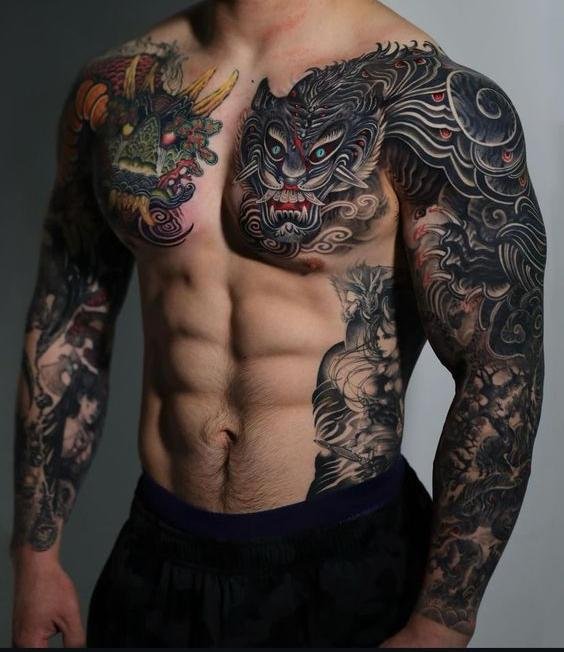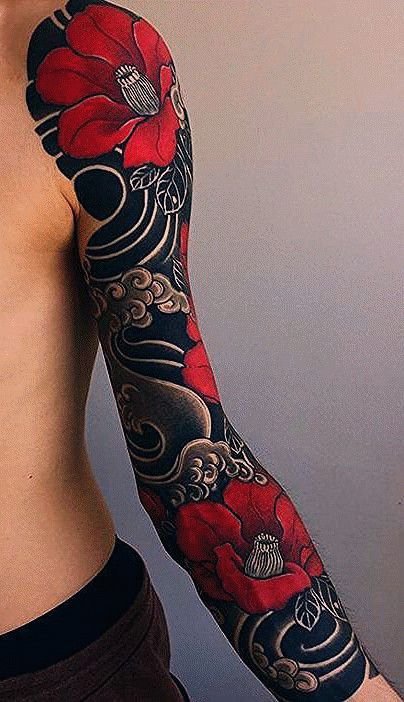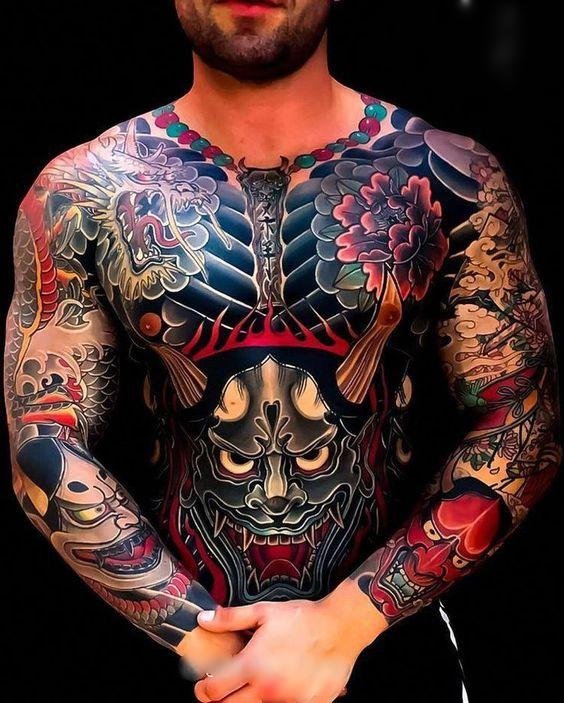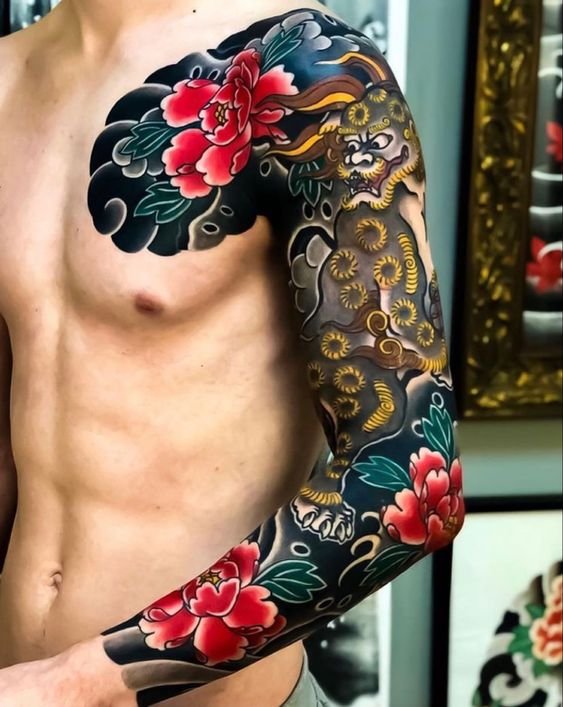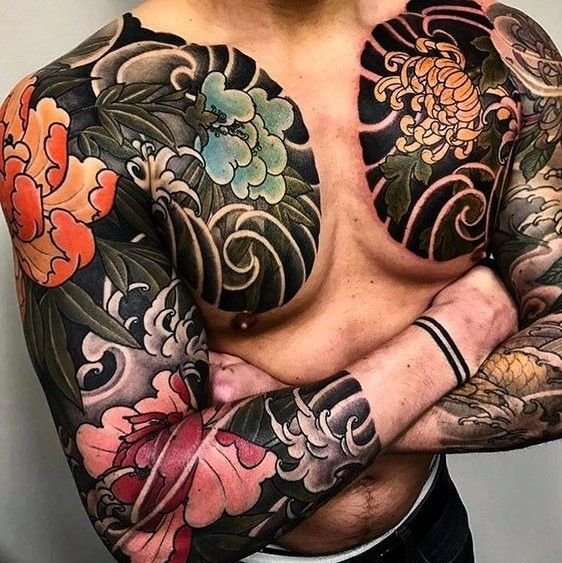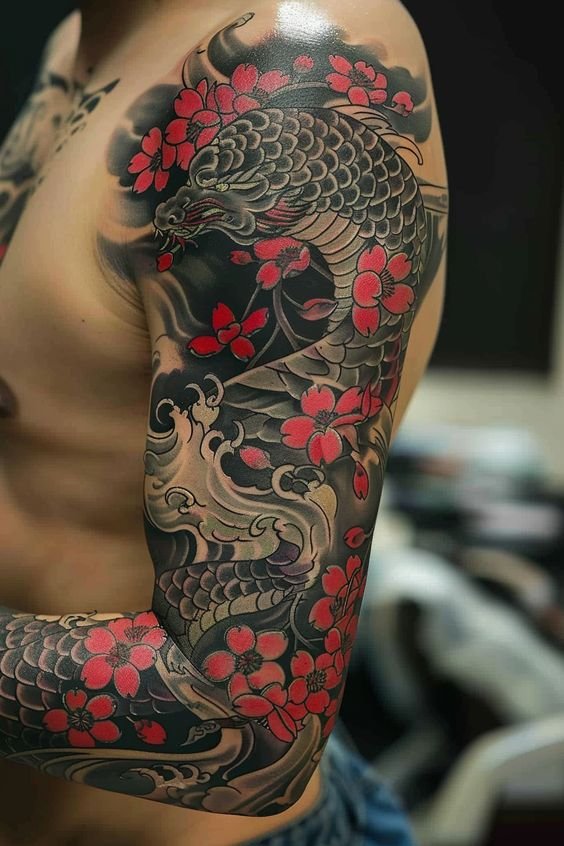Yakuza Tattoos:
Art, Culture, and the Mysteries
of the Japanese Mafia
Hello, friends!
In the world of tattoos, there are many styles and directions, but Yakuza tattoos hold a special place due to their unique history, significance, and symbolism. Today, we'll dive into this mysterious and captivating world to understand what makes these tattoos so exceptional. Ready? Let's go!
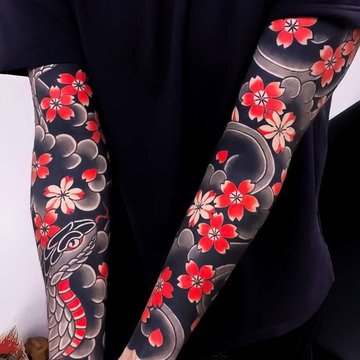
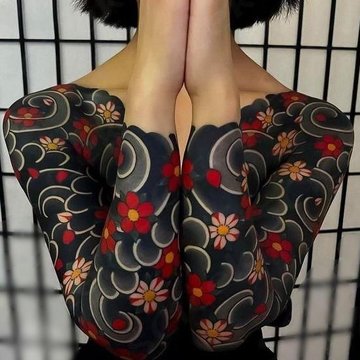
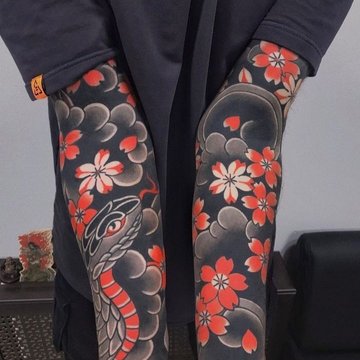
Yakuza:
A Brief History Lesson
The Yakuza, also known as gokudō, are Japanese organized crime syndicates whose roots stretch deep into antiquity.
The history of the Yakuza begins in the Edo period (1603-1868), with the emergence of groups of traders and vagrants. Over time, these groups evolved into the powerful criminal organizations we know today.
The term "Yakuza" originates from a Japanese card game, "Oicho-Kabu," where the losing hand, 8-9-3 (ya-ku-za in Japanese), symbolized bad luck. Since then, the word has come to denote people who live outside the law and oppose societal norms.
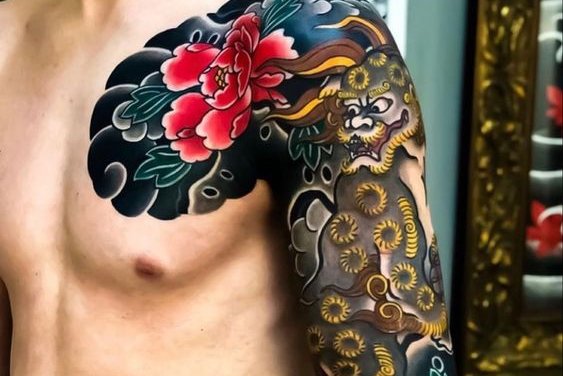
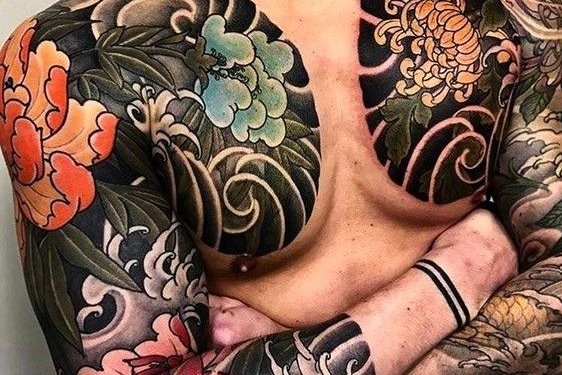
Irezumi Art:
Traditional Japanese Tattoos
What is Irezumi?
Irezumi, which translates from Japanese as "inserting ink," refers to traditional Japanese tattoos applied by hand using a special tool called tebori. This method is extremely painful and requires significant skill from the tattoo artist. The tebori consists of several needles attached to a long handle, which the artist uses to embed ink under the skin.
Symbolism and Meaning Irezumi is not just body decoration; it's an art form where every detail has meaning. Traditional Yakuza tattoos often cover large areas of the body, such as the back, chest, shoulders, and thighs, leaving only the hands and feet exposed to conceal the tattoos under clothing.
Each element of the tattoo carries a specific meaning:
- Dragons: symbolize strength, bravery, and protection. In Japanese mythology, dragons are divine beings that bring luck and protect from evil.
- Koi fish: represent resilience, perseverance, and courage. A koi swimming upstream symbolizes overcoming adversity and achieving success.
- Tigers: embody strength, bravery, and protection. They are also symbols of good fortune and spiritual strength.
- Phoenixes: symbolize rebirth and immortality. In Japanese culture, the phoenix is associated with new beginnings and the cycle of life.
- Flowers: such as peonies, chrysanthemums, cherry blossoms, and lotuses are commonly used in Yakuza tattoos and have their own symbolic meanings. For example, peonies symbolize wealth and prosperity, chrysanthemums stand for nobility and longevity, and cherry blossoms represent the transience of life and beauty.
Personal Stories Yakuza tattoos often tell personal stories of their owners. These stories may reflect significant life events, affiliation with a specific clan, or adherence to certain ideals. A tattoo becomes a sort of visual biography that a person carries on their body.
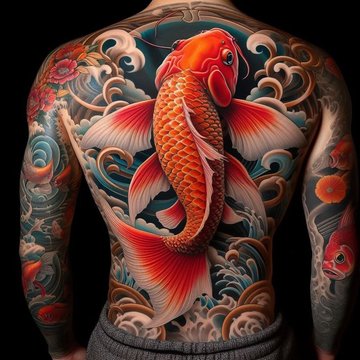
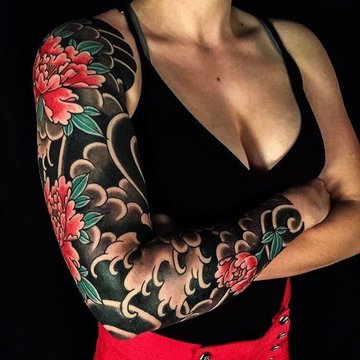
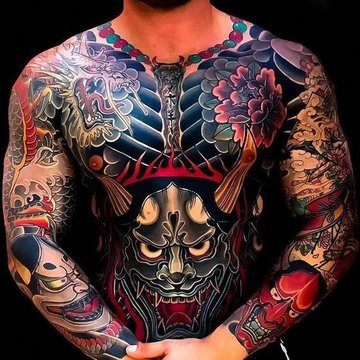
Modern Influences
and Changes
- Influence of Western Culture Today, the tradition of Yakuza tattoos continues but is influenced by Western culture and modern technology. Young people in Japan are increasingly choosing fusion-style tattoos, where traditional Japanese motifs intertwine with modern trends. Contemporary tattoo artists use electric machines, which significantly speed up the process and reduce pain.
- Changing Public Perception Previously, Yakuza tattoos were exclusively associated with the criminal world, and people with such tattoos faced biased attitudes in society. However, in recent years, the situation has begun to change. Tattoos are becoming increasingly popular among the youth and are seen as a form of self-expression and art.
- Women and Tattoos Interestingly, traditionally, Yakuza tattoos were worn only by men. But today, more and more women are choosing Irezumi-style tattoos. For them, it's a way to express their individuality and affiliation with a particular culture.
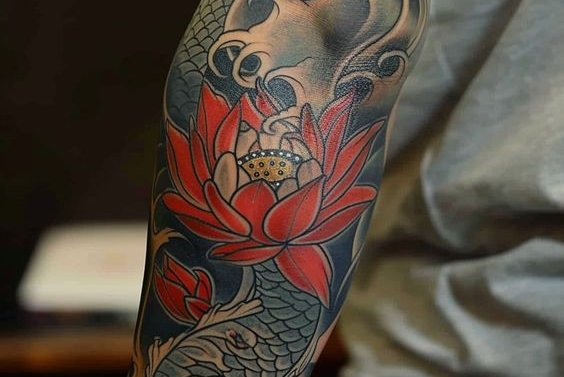
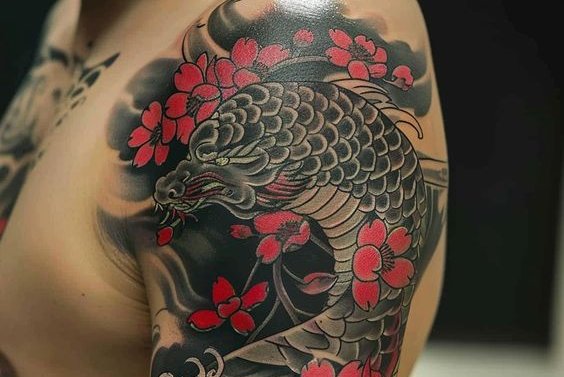
Yakuza and Modern Art
- Cinema and Literature The theme of Yakuza and their tattoos frequently appears in cinema and literature. Films like Takeshi Kitano's "Brother" and Fumihiko Sori's "Black Mark" explore the culture and life of the Yakuza, showcasing them from different angles. Literature also actively explores this theme, including novels and documentary books.
- Influence on Fashion Yakuza tattoos have had a significant impact on fashion. Designers draw inspiration from traditional Japanese tattoos, creating collections of clothing and accessories featuring Irezumi elements. This allows a piece of Japanese culture to be integrated into everyday life.
- Tattoos Beyond Japan Yakuza-style tattoos have become popular not only in Japan but also beyond its borders. Many people around the world choose tattoos with traditional Japanese motifs, inspired by the culture and art of Irezumi. This proves again that art knows no boundaries and can unite people of different cultures.


 Create a sketch in the VEAN TATTOO AI generator
Create a sketch in the VEAN TATTOO AI generator
